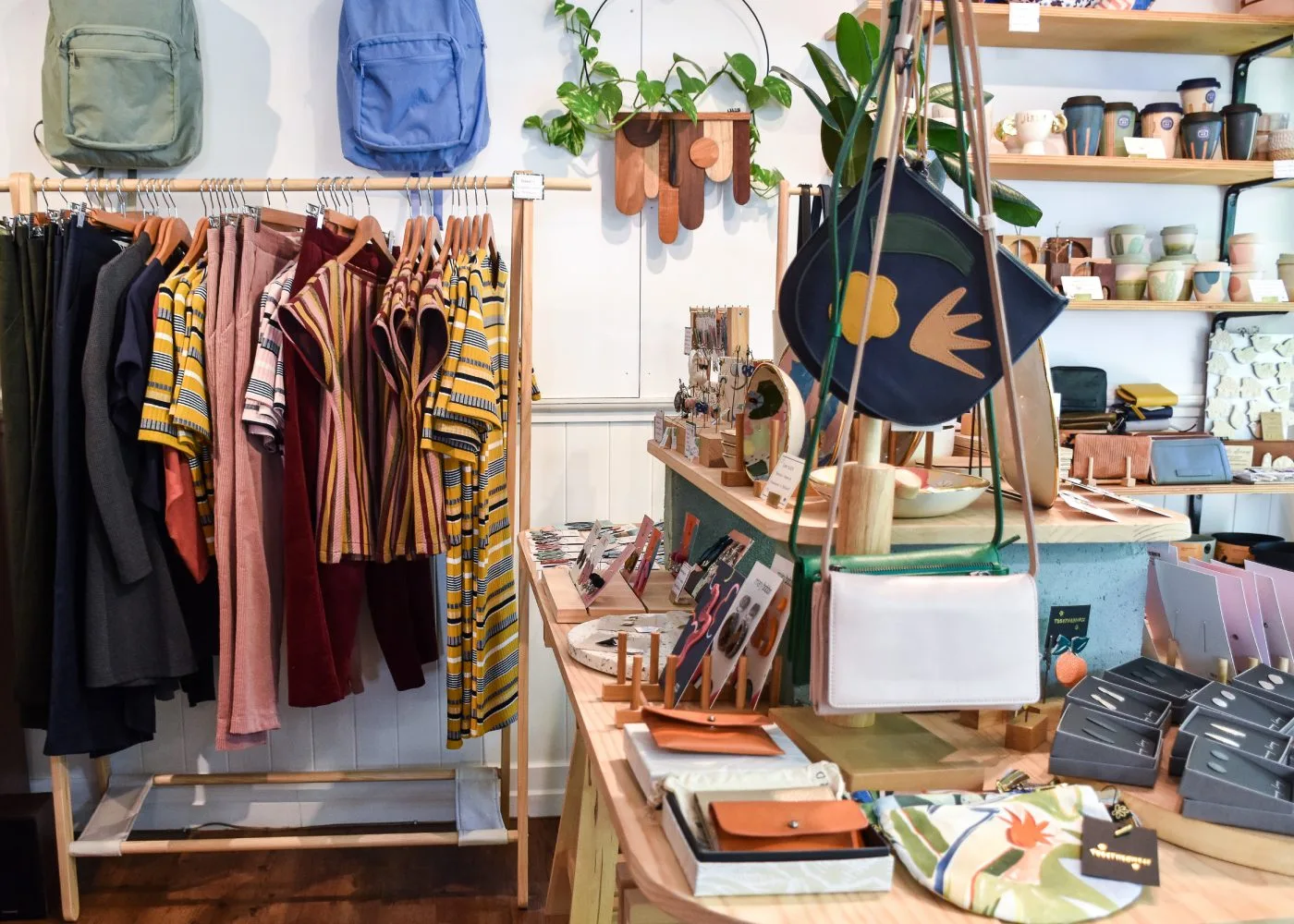Slow fashion is a growing movement in the fashion industry, emphasizing sustainability, ethical production, and quality over quantity. Slow fashion brands aim to counteract the negative impacts of fast fashion by promoting responsible consumption and production practices.
Understanding the Principles of Slow Fashion
Slow fashion is not just about the speed of production; it’s a philosophy that encompasses the entire lifecycle of a garment. Unlike fast fashion, which churns out cheap, disposable clothing, slow fashion prioritizes durability, craftsmanship, and timeless design. Slow fashion brands focus on creating pieces that are made to last, reducing the need for constant consumption and minimizing environmental impact.
Characteristics of Slow Fashion Brands
Slow fashion brands adhere to several key principles, including sustainable sourcing of materials, fair labor practices, and transparency in their supply chain. They prioritize using eco-friendly fabrics such as organic cotton, hemp, and recycled materials, reducing the reliance on harmful chemicals and minimizing waste throughout the production process. Additionally, slow fashion brands often partner with artisans and small-scale producers, ensuring fair wages and safe working conditions for workers.
Why Choose a Slow Fashion Brand?
Environmental Impact of Fast Fashion
Fast fashion has a significant environmental footprint, contributing to pollution, resource depletion, and waste accumulation. The rapid pace of production leads to overconsumption and excessive waste, with millions of tons of clothing ending up in landfills each year. By supporting slow fashion brands, consumers can reduce their carbon footprint and support more sustainable practices.
Social Impact of Fast Fashion on Workers
The fast fashion industry is notorious for its exploitation of garment workers, who often endure low wages, long hours, and unsafe working conditions. Many fast fashion brands outsource production to countries with lax labor laws, leading to human rights abuses and exploitation. Slow fashion brands prioritize fair labor practices, ensuring that workers are paid a living wage and have access to safe working conditions.
Key Features of Slow Fashion Brands
Use of Eco-Friendly Materials
Slow fashion brands are committed to using environmentally friendly materials that minimize harm to the planet. They opt for organic, recycled, or upcycled fabrics, reducing the reliance on conventional cotton, which is one of the most pesticide-intensive crops globally. By choosing sustainable materials, slow fashion brands help conserve natural resources and reduce pollution associated with textile production.
Ethical Production Practices
Ethical production is a cornerstone of slow fashion, with brands prioritizing fair wages, safe working conditions, and respect for workers’ rights. Unlike fast fashion factories, which often prioritize speed and cost-cutting measures, slow fashion brands prioritize the well-being of their workers, ensuring that they are treated with dignity and respect.
Transparency in the Supply Chain
Transparency is essential in the slow fashion movement, with brands committed to providing visibility into their supply chain practices. They trace the journey of their garments from raw materials to finished products, allowing consumers to make informed choices about the brands they support. By being transparent about their sourcing and production processes, slow fashion brands build trust with consumers and hold themselves accountable for their environmental and social impact.
Long-Lasting and Timeless Designs
Slow fashion brands prioritize quality over quantity, creating garments that are designed to last for years, if not decades. They eschew fleeting trends in favor of timeless designs that withstand the test of time, encouraging consumers to invest in pieces that they will cherish for years to come. By promoting a culture of mindful consumption, slow fashion brands help reduce the cycle of constant buying and discarding, leading to a more sustainable and fulfilling relationship with clothing.
Examples of Successful Slow Fashion Brands
Patagonia
Patagonia is a trailblazer in the slow fashion brand movement, known for its commitment to environmental and social responsibility. The brand prioritizes sustainability throughout its supply chain, from using recycled materials to promoting fair labor practices. Patagonia’s durable outdoor apparel has garnered a loyal following among outdoor enthusiasts, who appreciate the brand’s ethical stance and high-quality products.
Everlane
Everlane is a pioneer in transparent pricing and ethical production, offering a wide range of timeless basics and wardrobe essentials. The brand is known for its radical transparency, providing detailed information about the cost breakdown of each product and the factories where they are produced. Everlane’s commitment to fair labor practices and sustainable materials has resonated with consumers seeking ethically made clothing without compromising on style.
Tips for Supporting Slow Fashion
Make Informed Purchasing Decisions
When shopping for clothing, take the time to research brands and their values. Look for certifications such as Fair Trade or GOTS (Global Organic Textile Standard), which indicate a commitment to ethical and sustainable practices. By supporting brands that align with your values, you can vote with your dollars and drive positive change in the fashion industry.
Embrace Minimalism
Embracing a minimalist wardrobe is a powerful way to reduce your environmental footprint and support slow fashion. Instead of chasing trends and buying new clothes every season, focus on building a curated collection of high-quality pieces that you truly love and will wear for years to come. By prioritizing quality over quantity, you can reduce waste and contribute to a more sustainable fashion ecosystem.
Conclusion:
The rise of slow fashion brands represents a shift towards more conscious consumption and production practices in the fashion industry. By choosing to support slow fashion, consumers can play a role in creating a more sustainable and equitable future for the planet and its people. Whether it’s opting for eco-friendly materials, supporting fair labor practices, or embracing a minimalist wardrobe, every small step towards slow fashion makes a difference in building a more ethical and sustainable fashion industry.











